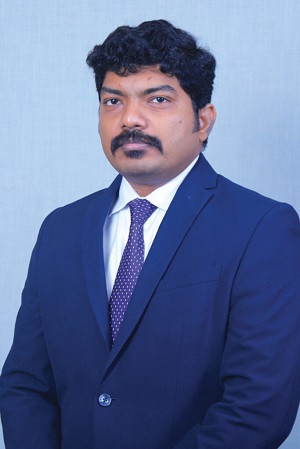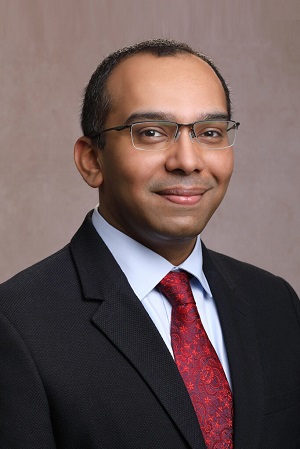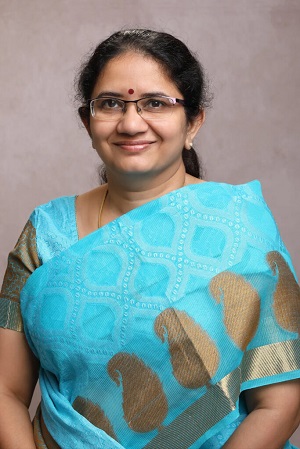Voice & Airway Clinic
Voice
Our voice plays a vital role in the way others perceive us. Voice problems affect people of all ages and professions. Hoarseness, discomfort or straining to talk or sing could be mundane symptoms or something as serious as voice box cancer. A person experiencing difficulty should be evaluated promptly by a voice disorder specialist. Voice disorders include any problem with the pitch, volume or tone of your voice. These problems occur when your vocal cords don't vibrate as they should. If your vocal cords become inflamed, develop growths or become paralyzed, they can’t work properly and you may develop a voice or swallowing disorder. Most voice problems are managed successfully without surgery, through voice therapy and medications. If surgery is necessary, precise and specialized techniques that reduce tissue harm and promote faster healing performed in the form of either Phonosurgery or Micro-Laryngeal Surgery. Permanent weaning of tracheostomy tube is also done in a patient – centred manner.
Airway
Complex airway disorders can affect your larynx (voice box), trachea (windpipe) or pharynx (back of the mouth and nose). If you suffer from a complex airway disorder, you may have trouble with activities such as speaking or even breathing comfortably. Complex airway diseases are comprised of cancerous and non-cancerous disorders of the windpipes affecting breathing and speech.
Airway diseases can appear in many forms and are often misdiagnosed as other lung problems such as asthma, emphysema or chronic bronchitis. Cancers affecting the windpipes include tumors of the larynx, thyroid, lung or can be caused by tumors from other organs. Non-cancerous disorders are mainly caused by prolonged intubation, tracheostomy or auto-immune disorders, but often there is no cause. These disorders are complex due to the need for comprehensive evaluation and specialized procedures offered by a multidisciplinary team. Our team of experts work to develop a personalized care plan to help you speak and breathe with ease.


Symptoms of Voice disorders are
- Age-related changes to their sound of voice
- Decreased loudness
- Hoarseness
- Loss of pitch range
- Pain or discomfort in the throat
- Pain or fatigue when speaking or singing
- Problems with the singing voice
- Voice breaks
- Vocal tremor
- Breathy voice
Symptoms and signs of complex airway disorders vary between different individuals, most common ones are
- Breathing Difficulties
- Difficulty breathing or a feeling of not getting enough air
- Unexplained episodes of respiratory distress
- Shortness of breath (especially either with exertion or even at rest when)
- Cough (Brassy / Seal barking cough)
- Chest congestion (with inability to bring out the mucus)
- Expiratory Wheeze
- Stridor
Although rapid worsening can happen, symptoms from complex airway diseases usually progress slowly and gradually worsen over time

Conditions Treated both by non-surgical and surgical treatment
Larynx (Voice Box)
- Laryngitis
- Laryngo Pharyngeal Reflux (Chronic Throat clearing)
- Chronic Cough
- Care of the professional voice
- Non-Cancerous vocal cord lesions (polyps, nodules, cysts, webs)
- Early stage Cancerous growths on the vocal cords
- Respiratory Papillomatosis
- Benign tumours of Vocal folds
- Premalignant Lesions of Vocal Cords
- Sulcus Vocalis
- Essential Voice Tremor
- Vocal Cord Paralysis / dysfunction (Unilateral / Bilateral)
- Spasmodic Dysphonia
- Muscle Tension Dysphonia
- Presbyphonia or Aging Voice
- Irritable Larynx syndrome
- Reinke’s Edema
- Vocal Fatigue
- Vocal cord scars
- Laryngomalacia
- Laryngeal Stenosis (Supraglottic / Subglottic stenosis)
- Gender Affirming voice care
Trachea & Bronchi (Windpipes)
- Acid reflux dilemmas affecting the airway
- Tracheal Stenosis
- Post-intubation airway stenosis
- Post-radiation pharyngeal and airway stenosis
- Tracheo – Oesophageal Fistula
- Delayed Airway Trauma
- Autoimmune Diseases of the airway
- Central airway collapse (Tracheobronchomalacia)
- Granulomatosis with polyangiitis (Wegener’s granulomatosis)
- Laryngotracheal clefts

Specialised Services offered for Voice Disorders
- Voice Therapy (behavioural intervention)
- Botulinum toxin (Botox) injections (spasmodic dysphonia and laryngeal tremor)
- In-office Laser treatments for various vocal cord lesions
- In-office Injection Laryngoplasty
- In-office nerve blocks (Chronic Cough)
- Routine tracheostomy care
- Laryngeal Microsurgery (Microlaryngeal surgery of vocal cords)
- Transoral Laser Microsurgery (Cordectomy / Laser Assisted Sulcus Release)
- Professional voice care
- Medialization Thyroplasty (Type 1)
- Lateralization Thyroplasty (Type 2)
- Shortening Thyroplasty (Type 3)
- Lengthening Thyroplasty (Type 4)
- Laryngeal Reinnervation for vocal cord paralysis ( Non Selective / Selective)
- Wendler Glottoplasty
- Selective Laryngeal Adductor Denervation – Reinnervation (SLAD-R) for adductor spasmodic dysphonia
- Epiglottoplasty
- Pharyngoplasty

Specialised Services offered for Complex Airway Disorders in Adult patients
- Bronchoscopy and Tracheoscopy
- Endoscopic Dilation of Subglottis / Trachea
- Cricotracheal resection
- Open-airway surgery of the larynx, including posterior cricoid split with rib graft
- Partial Arytenoidectomy
- Laser cordotomy
- Supraglottoplasty
- Tracheal resection
- Laryngotracheal reconstruction (laryngotracheoplasty)
- Slide tracheoplasty
- Tracheal t-tube insertions
- Tracheostomy revisions and Tracheostomaplasty
Most airway treatments aim to widen the airway and remove obstructions to make breathing easier. Depending on your specific diagnosis and needs, your airway treatment may include oral medications, injections, surgery or a combination of two or more treatments.
Facilities
Endoscopic imaging tests: A flexible or rigid tube with a light and camera at the end (endoscope) is inserted through the nose or mouth to view portions of the airway.
Specialized endoscopic tests that are performed include:
Laryngoscopy: examines the Larynx
Bronchoscopy: inspects the Trachea and Bronchi
Stroboscopy: Slow motion video capture of the vocal cords performed during vocalising
Endoscopic biopsy: Tissue samples taken to be analysed
Triple endoscopy: Evaluates the larynx, upper and lower airway, and upper gastrointestinal tract in a single endoscopic procedure in the hospital

MEET YOUR CARE TEAM
Team approach
We work together to ensure that you receive the comprehensive care you need for your voice. Our team members comprising of Laryngologists and Speech Language Pathologists, collaborate with each other, as well as with experts in other medical disciplines, to provide you with individual care that focus on the unique needs for your voice.
Our complex airway team includes specialists in Laryngology, Thoracic Surgery, Interventional Pulmonology, Gastroenterology, Speech Language Pathology and Respiratory Therapy.
Second opinions
A second opinion can help you make the best health decisions. We review your medical history, diagnostic tests, any previous treatments and your personal preferences to give you an informed opinion.
Patient care coordinators
Our patient care coordinators guide you through your care plan. They can help you schedule appointments, gather medical records, address concerns and coordinate your care among all the specialists involved in your treatment.

Departmental Surgeon
Dr. Arulalan Mathialagan
MBBS, MS (ORLHNS), DNB (ENT), PDCC (Neuro – Otology)
ENT / Otorhinolaryngologist | Skull Base Surgeon | Neuro – Otologist
Departmental Surgeon
Dr. Sankavi Dhanasekar
MBBS, MS (ENT)
ENT / Otorhinolaryngologist
Departments
Special Clinics
Quick Links
Contact Us
-
No.747, Poonamallee High Road,
Alagappa Nagar, Kilpauk,
Chennai – 600 010.
(Opp – Pachaiyappa’s College) -
Reach us at: - +91 73977 68795
- 044 4074 2000
-
For Enquiries: - admin@thanchospital.com
-
For Appointments: - appointments@thanchospital.com
-
Pharmacy: - +91 73050 99901
-
Laboratory: - +91 73050 39903


